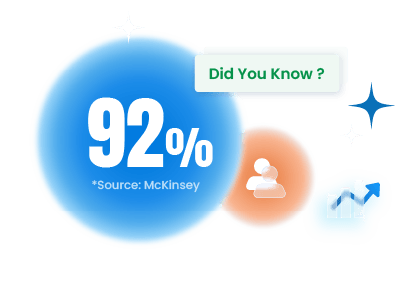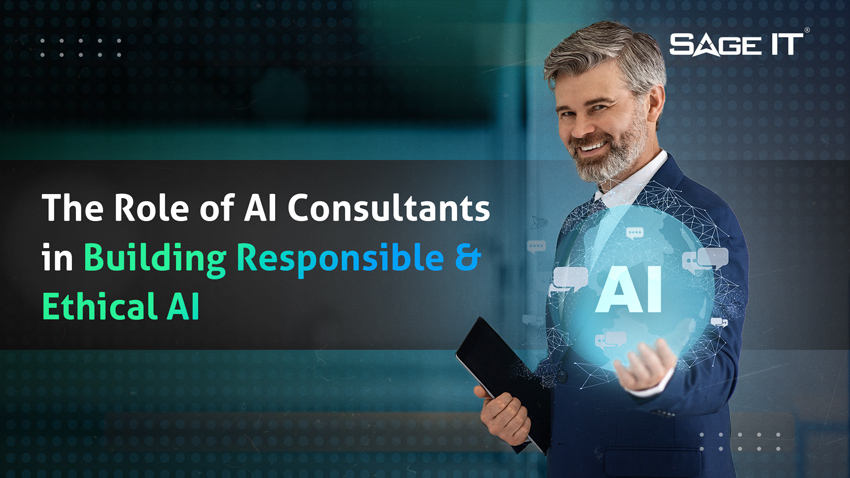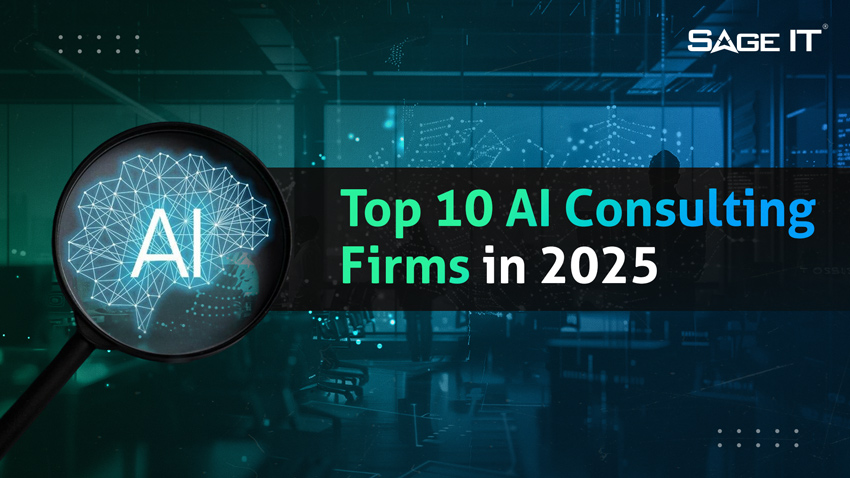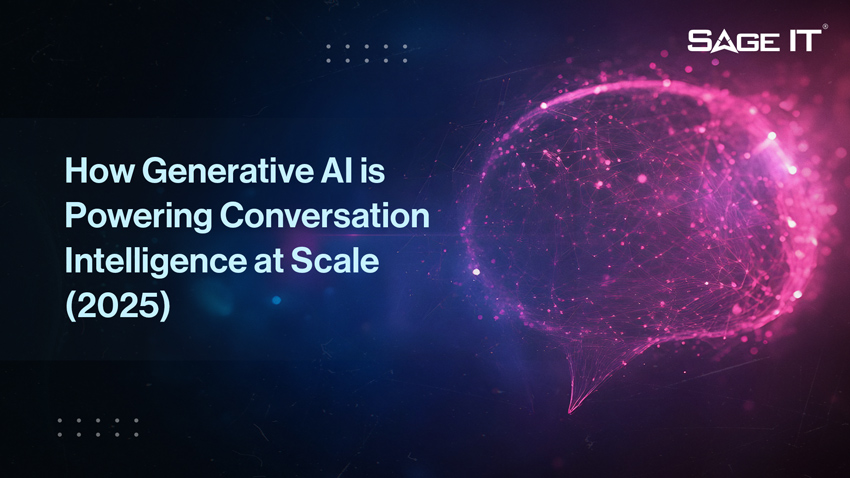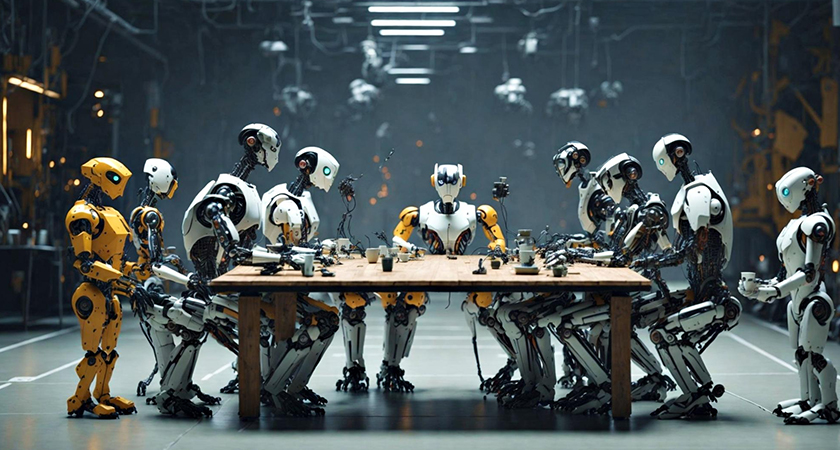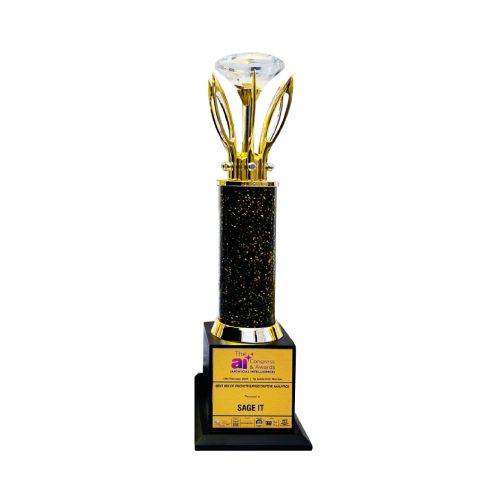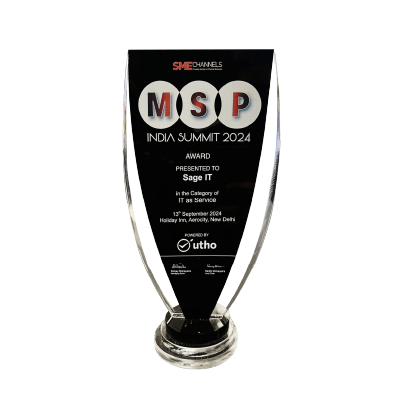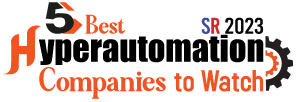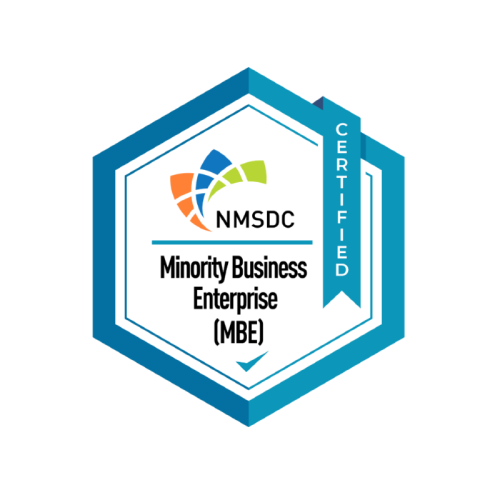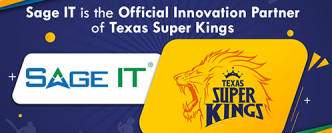Artificial intelligence (AI) is changing how human resources (HR) work. AI tools help with hiring, automate tasks, and give important insights, allowing HR leaders to focus on bigger plans. Picture a hiring process that quickly finds the best candidates, offers personalized employee development programs, and boosts productivity. AI has moved from simple automation to advanced analytics and personalized interactions, making HR a key part of business growth. In this blog post, we’ll look at how AI is benefiting employees, improving organizations, and how HR leaders can use AI to create a more efficient, engaged, and prepared workforce
AI-Powered Talent Acquisition
- Recruitment and Talent Acquisition: AI automates resume screening and matches candidates to jobs quickly. This reduces hiring time and improves the quality of hires by reviewing candidate data to find the best fits for open positions.
- Onboarding and Training: AI-driven systems offer tailored learning experiences, helping new employees get up to speed faster. These systems also automate tasks like document submission and training schedules, making the process more efficient.
- Employee Engagement and Support: Chatbots and virtual assistants provide 24/7 support, answering employee questions and offering guidance. This continuous support enhances employee satisfaction and eases the workload on HR teams.
- Performance Management and Feedback: AI tools deliver real-time feedback and performance analytics. Managers can track employee progress, identify improvement areas, and provide timely feedback, promoting continuous development.
- Compensation and Benefits: AI ensures fair and competitive salary structures by examining market data and employee performance. It also simplifies benefits administration, helping HR teams create attractive compensation packages.
- Retirement Planning: AI-driven tools provide customized financial advice for retirement planning. These tools consider each employee’s data and preferences, ensuring a well-planned and secure retirement.
AI for Strategic HR Insights
- More Efficiency and Productivity: AI handles repetitive tasks like data entry and payroll processing, reducing mistakes. This lets HR professionals focus on important projects, making everything run smoother and faster.
- Better Employee Experience: AI provides support through chatbots and virtual assistants, giving timely help and advice. This makes HR services easier to access and more responsive, making employees happier.
- Smart Decision Making: AI helps HR use advanced analytics to get better insights and plan strategically. By looking at large sets of data, AI helps spot trends, predict outcomes, and make smart decisions that fit the company’s goals.
- Customized Employee Development: AI tailors training programs and career opportunities to each person’s needs, encouraging continuous learning and growth. This approach keeps employees engaged and reduces turnover.
- Cost Savings and Efficiency: AI automates routine tasks and simplifies HR processes, cutting down on recruitment costs and administrative work. This leads to more effective and sustainable operations.
Data Security in the AI Era
- Privacy and Data Security: Using AI in HR needs strong protection for sensitive employee data. Preventing data breaches and following privacy laws are essential to maintain trust.
- Reskilling and Job Displacement: As AI takes over routine tasks, employees need new skills to avoid job losses. Companies must invest in training programs to help workers move into new roles and adapt to AI-driven processes.
- Ethical Use of AI and Bias Mitigation: It’s important to use AI fairly to prevent discrimination. AI models should be designed and monitored to reduce biases, ensuring fair HR practices.
- Integration with Existing HR Systems: Adding AI to current HR systems can be tricky. Ensuring a smooth alignment is necessary so AI tools work well without causing problems.
- Maintaining Human Touch in HR Processes: Even with automation, it’s important to keep understanding and personal connections in HR. AI should help, not replace, human interactions, ensuring employees still receive personal and compassionate support.
Expanding Your Vision for End-to-End Visibility and Control
But remember, even the smartest crystal ball can only see so far. True supply chain mastery means extending your vision outward. Today’s supply chains aren’t confined to your own office walls – it’s a massive ecosystem involving suppliers, shipping companies, warehouses, customers… you name it!
The magic of true end-to-end integration is getting all these players on the same page, sharing data seamlessly, and moving in sync.
Take Nike, for example. They implemented an end-to-end data integration platform that linked their network of suppliers, factories, and retailers. This gave them unprecedented visibility into inventory levels, production schedules, and real-time demand signals. The impact was game-changing:
- Real-time alerts about potential disruptions allowed them to proactively mitigate delays
- Automatic adjustments to production schedules based on demand forecasts reduced waste and optimized inventory.
To get the whole ecosystem playing nice, everyone needs to agree on how they’ll share info. Think of it like a universal language for supply chain data. This cuts down on confusion, errors, and lets you get down to business!
The Power of Cloud-Based Integration
Implementing this type of seamless data sharing doesn’t have to be an IT nightmare. Cloud-based platforms have revolutionized the way companies connect their supply chains. These platforms act as a central hub, ensuring data flows smoothly and securely, regardless of where it originates. The best part? You can often get everything operational far quicker and more cost-effectively compared to traditional on-premises systems.
Security and Trust: The Foundation of Connected Supply Chains
With the power of seamless integration comes an equal responsibility to safeguard your data. With your entire supply chain connected, protecting sensitive information becomes paramount. Strict data governance policies, robust encryption, and continuous monitoring are essential. It’s about more than just preventing breaches – it’s about building trust across your entire ecosystem and ensuring partners feel confident sharing their information.
Predictive Analytics & AI-Powered Insights
- AI-powered HR Platforms and Software: These platforms streamline various HR functions like recruitment, performance management, and employee engagement. By combining multiple HR processes into one system, they improve efficiency and coordination.
- Chatbots and Virtual Assistants: AI tools like chatbots provide 24/7 support by answering employee questions, automating routine tasks, and facilitating communication. This reduces response times and improves employee satisfaction.
- Predictive Analytics and Data Management: AI-driven predictive analytics tools give deep insights into workforce trends, employee performance, and potential issues. These insights help HR professionals make informed decisions, plan strategically, and address workforce challenges proactively.
- Automation of Administrative Tasks: AI automates tasks like payroll processing, scheduling, compliance reporting, and benefits administration. This reduces manual work and errors, allowing HR teams to focus on strategic initiatives and value-added activities.
1. Conduct a Comprehensive Assessment
Don’t rush in blindly. Map out all your existing systems – warts and all! – and pinpoint exactly where your data resides. Also, get a clear picture of your suppliers, shipping partners… everyone involved in your extended supply chain.
2. Define a Clear Data Integration Strategy
Based on your assessment, envision your ideal future state. Which systems need to integrate? What kind of insights should be readily available to your team? What are your company’s most important goals? Document it all.
3. Dealing with Legacy Systems
Those clunky old systems your company has relied on for ages? They might need a bit of an upgrade. The good news is, there are clever tools that can act like translators, getting those old systems to communicate with the new ones. In some cases, it might even make sense to gradually replace those ancient systems over time to future-proof your operations entirely.
4. Ensuring Data Quality and Consistency
Garbage in, garbage out – it’s a classic saying, and it rings especially true in supply chains. Before going live, conduct a thorough audit of your data. Double-check for errors, fill in missing information, and make sure everyone uses consistent terms and formats. Think of it as preventing shipment mix-ups before they even happen. It’s an investment with significant returns.
5. Invest in Scalable Integration Technologies
A plethora of powerful tools exist to help you connect the dots. Cloud platforms and data-sharing solutions abound – choose those that align with your needs and can scale alongside your company’s growth.
6. Establish Robust Data Governance and Security Frameworks
From the outset, implement strict rules surrounding your data. Determine access permissions, storage methods, and protection measures – these are foundational, not an afterthought.
7. Foster a Culture of Continuous Improvement
This isn’t a one-time fix – it’s about transforming how your company views data. Keep everyone informed, celebrate data-driven successes, and always seek new avenues for improvement.
8. Cultivating a Data-Driven Culture
Even the most advanced tech needs people to drive true transformation. Get your team excited about how data can simplify their jobs and empower better decision-making. Training, success stories, and recognizing data champions will go a long way. It’s about changing mindsets, not just deploying software.
9. Leverage Strategic Partnerships and Ecosystem Collaboration
Work closely with industry groups and experts to establish data-sharing standards and best practices. When the entire supply chain industry operates more intelligently, everyone benefits.
AI Technologies for Deeper Insights
- Emerging AI Technologies in HR: Advanced machine learning algorithms and AI-driven analytics platforms will greatly change HR. These technologies will offer deeper insights into employee behavior and performance, allowing for more precise talent management and workforce planning.
- Long-term Implications for Workforce Management: AI integration will lead to more strategic HR practices. Predictive talent management will become common, helping HR teams address workforce needs proactively. Customized employee experiences will also improve engagement.
- Evolution of HR Roles and Responsibilities: HR professionals will focus more on strategic decision-making rather than administrative tasks. AI will handle routine processes, giving HR teams more time to work on initiatives that drive business growth and employee satisfaction. This change will create a more dynamic and adaptive HR environment.
1. Conduct a Comprehensive Assessment
Don’t rush in blindly. Map out all your existing systems – warts and all! – and pinpoint exactly where your data resides. Also, get a clear picture of your suppliers, shipping partners… everyone involved in your extended supply chain.
2. Define a Clear Data Integration Strategy
Based on your assessment, envision your ideal future state. Which systems need to integrate? What kind of insights should be readily available to your team? What are your company’s most important goals? Document it all.
3. Dealing with Legacy Systems
Those clunky old systems your company has relied on for ages? They might need a bit of an upgrade. The good news is, there are clever tools that can act like translators, getting those old systems to communicate with the new ones. In some cases, it might even make sense to gradually replace those ancient systems over time to future-proof your operations entirely.
4. Ensuring Data Quality and Consistency
Garbage in, garbage out – it’s a classic saying, and it rings especially true in supply chains. Before going live, conduct a thorough audit of your data. Double-check for errors, fill in missing information, and make sure everyone uses consistent terms and formats. Think of it as preventing shipment mix-ups before they even happen. It’s an investment with significant returns.
5. Invest in Scalable Integration Technologies
A plethora of powerful tools exist to help you connect the dots. Cloud platforms and data-sharing solutions abound – choose those that align with your needs and can scale alongside your company’s growth.
6. Establish Robust Data Governance and Security Frameworks
From the outset, implement strict rules surrounding your data. Determine access permissions, storage methods, and protection measures – these are foundational, not an afterthought.
7. Foster a Culture of Continuous Improvement
This isn’t a one-time fix – it’s about transforming how your company views data. Keep everyone informed, celebrate data-driven successes, and always seek new avenues for improvement.
8. Cultivating a Data-Driven Culture
Even the most advanced tech needs people to drive true transformation. Get your team excited about how data can simplify their jobs and empower better decision-making. Training, success stories, and recognizing data champions will go a long way. It’s about changing mindsets, not just deploying software.
9. Leverage Strategic Partnerships and Ecosystem Collaboration
Work closely with industry groups and experts to establish data-sharing standards and best practices. When the entire supply chain industry operates more intelligently, everyone benefits.
Conclusion
AI is changing HR by automating tasks, improving decisions, and making employee experiences more personal. It helps with everything from hiring to retirement planning, making processes faster, increasing engagement, and providing useful data insights. While there are challenges like data privacy, ethics, and keeping a human touch, new AI technologies promise even more changes. Partnering with an experienced AI consulting firm can help HR leaders adopt these technologies strategically, ensuring compliance, efficiency, and measurable outcomes. The future of HR will combine AI advancements with human insight, creating an efficient and caring HR system.


